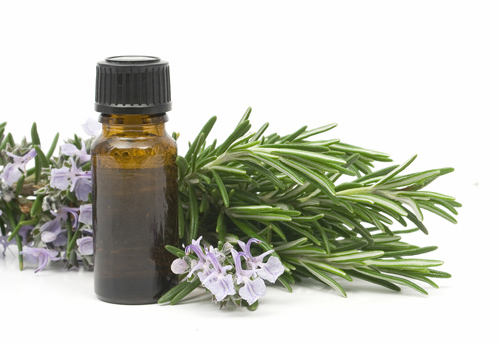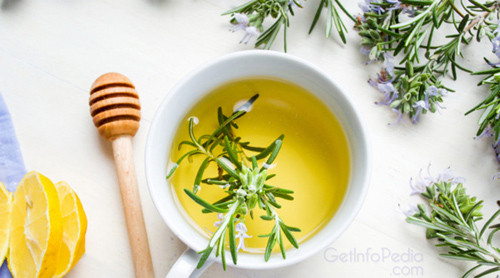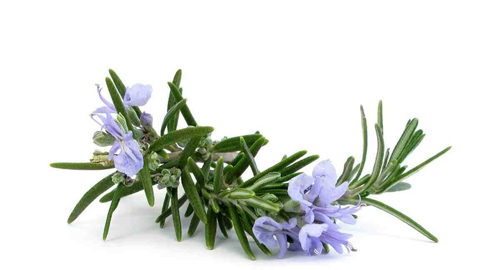Contents
The benefits of rosemary go far beyond its aromatic qualities; this herb is beneficial. It is not easy to go to the countryside in Mediterranean countries without finding this noble shrub. It gives us its evergreen leaves in winter, spring, and summer and its cool fragrance.

We can even see some bees sipping the nectar from their small flowers so that exquisite rosemary honey will be produced. The benefits of rosemary oil have been known for centuries. Egyptian Pharaohs reportedly ordered a rosemary bouquet on their tombs to perfume their journey to the afterlife.
In the fourteenth century, Queen Elizabeth of Hungary, who suffered from rheumatism, was cured by this plant and even recovered her youth to the point that, at age 72, she was proposed to by the king of Poland. Since then, “water of the Hungarian Queen” has been a reference point and one of the many rosemary names.
Another famous woman also suffered from rheumatism; Madame de Sevigne even wrote that she was madly in love with the benefits of rosemary, which, to her, became “alleviation for all sorrow.”
Rosemary Scientific Facts
- French: Romarin
- Spanish: Romero
- Habitat: Native to the dry, hot regions of southern Europe, it grows on calcareous soils near bushes.
- Description: Woody shrub of the Labiatae family, growing up to one meter high, with narrow, elongated leaves, dark green on their upper sides, and covered with a layer of fine silver hairs on their undersides. Its flowers are small, blue, or light violet. The whole plant has a pleasant camphor aroma.
- Parts of the plant used: The leaves and the flower clusters.
Preparation and Dosage

- Infusion of decoction with 20-40 g of leaves or flower clusters per liter of water. Drink up to two or three cups of rosemary tea daily.
- Essence: The recommended dose is 3-4 drops, thrice daily.
- Baths and cleaning with a concentrated infusion or decoction made with 80-100 g per liter of water. Steep for 20 minutes and strain. This decoction can be applied directly on the inflamed area or poured in the bathtub’s water for a refreshing bath.
- Gargles: With the concentrated infusion.
- Massage with rosemary alcohol: See the method to prepare it below.
- Frictions with rosemary essence: Dissolved into alcohol or oil in a proportion of 2-5 ml per 100 ml.
- Fomentations and hot compresses: Soaked into the concentrated infusion or hot water, 15-20 drops of essence per liter have been added.
Benefits of Rosemary
Rosemary contains an essence with terpenic derivatives, to which the plant owes most of its medicinal properties, phenolic acids with diuretic properties, and flavonoids with antispasmodic action. Its properties are as follows:
Invigorating
The herb’s most significant effect. Convalescent people and those suffering from exhaustion, depression, and aged people will find infusions such as rosemary-infused water beneficial and stimulating, bringing them back to their lost vitality, as they did to the Queen of Hungary. Baths with an infusion or decoction and massage with alcohol or the essence of rosemary have a significant stimulant effect on low blood pressure or physical exhaustion.

Diuretic and Antispasmodic.
It is recommended for renal colic sufferers when calculi expulsion is required.
Digestive
Its cholagogue properties (stimulant of the bile secretion) and its hepatic protective regenerative and carminative properties (eliminates intestinal gas) make rosemary effective at easing digestion when ingested after meals. However, perhaps its external applications better highlight the benefits of rosemary, which is widely known due to its incredible effectiveness.
Vulnerary and Antirheumatic
The many benefits of rosemary also include strong anti-inflammatory properties, which make it an ideal plant to perform massages on sprains, edema, muscular and rheumatic aches. It is applied as massages (with rosemary alcohol or essence), fomentations, or hot compresses. The latter effectively relaxes the back’s muscles and eases cervical, back, or lumbar pain pains.
Healing and Antiseptic
Rosemary stimulates wounds, skin ulcerations, and eczema healing, making rosemary oil beneficial for skin conditions and something to write home about. Also, when applied as gargles, it heals mouth sores.
How to prepare rosemary alcohol
To prepare rosemary alcohol, mash a handful of green leaves in a bowl. Once mashed, put them into a hermetic bottle with 100-150 ml of ethyl alcohol, steep for three days, and strain. Apply it as a massage on the painful area with the help of a cotton cloth.
DISCLAIMER: All content on this website is presented solely for educational and informational objectives. You should not rely on the information provided as a replacement for advice, diagnosis, or treatment from a qualified medical expert. If you are pregnant, nursing, or have any preexisting medical concerns, you should talk to your doctor before using any herbal or natural medicines.
REFERENCES
- George D. Pamplona-Roger, M.D. “Encyclopedia of Medicinal Plants.” George D. Pamplona-Roger, M.D. Encyclopedia of Medicinal Plants. Ed. Francesc X. Gelabert. vols. 2 San Fernando de Henares: Editorial Safeliz, 2000. 674, 675. Print. [benefits of rosemary]
- Moss, M., Oliver, L., & Wilkinson, K. J. (2011). Effects of rosemary essential oil inhalation on cognitive performance and mood. Flavour and Fragrance Journal, 26(5), 390-398.
- Kennedy, D. O., Reay, D. S., Lawrence, A. J., & McEwen, J. (2011). Cognitive and mood effects of acute doses of guarana (Paullinia cupana) extract with and without rosemary (Rosmarinus officinalis) extract. Pharmacology Biochemistry and Behavior, 99(3), 334-342.
- Aggarwal, B. B., Kunnuma, S., Harikumar, K. B., Tharakan, S. T., Gupta, S., & Khanuja, S. P. S. (2009). In vitro and in vivo antioxidant and anti-inflammatory activities of volatile constituents from Colebrookea oppositifolia and Rosmarinus officinalis. Phytotherapy Research, 23(4), 489-495.
- Carvalho-Freitas, M. C., Costa, M. A. S., Batista, M. T., Smanioto, G., Soares, A. L., & Oliveira, R. C. (2010). Topical anti-inflammatory activity of Rosmarinus officinalis L. essential oil in mice. Evidence-Based Complementary and Alternative Medicine, 5(3), 313-318.
- Alkhayat, O. M., & Hussain, A. I. (2017). Hair loss: a comprehensive review of treatment options. International Journal of Trichology, 9(1), 39-50.
- Orhan, I. E., Özçelik, B., Kartal, M., & Konuk, M. (2010). Antibacterial and antifungal activities of some medicinal plants growing in the eastern Black Sea region. Turkish Journal of Biology, 34(3), 235-242.
